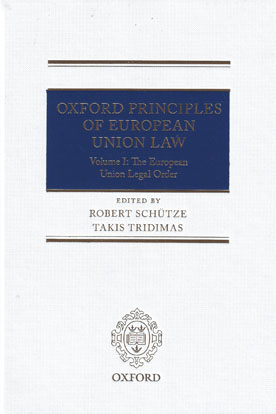
Since the 1957 Rome Treaty, the European Union has changed dramatically - in terms of its composition, scope and depth.
Originally established by six Western European States, the EU today has 28 Members and covers almost the entire European continent; and while initially confined to establishing a "common market", the EU has come to influence all areas of political, economic and social life.
In parallel with this enormous geographic and thematic expansion, the constitutional and legislative principles underpinning the European Union have constantly evolved. This three-volume study aims to provide an authoritative academic treatment of European Union law.
Written by leading scholars and practitioners, each chapter offers a comprehensive and critical assessment of the state of the law. Doctrinal in presentation, each volume nonetheless tries to present a broader historical and comparative perspective.
Volume I provides an analysis of the constitutional principles governing the European Union. It covers the history of the EU, the constitutional foundations, the institutional framework, legislative and executive governance, judicial protection, and external relations. Volume II explores the structure of the internal market, while Volume III finally analyses the internal and external substantive policies of the EU.